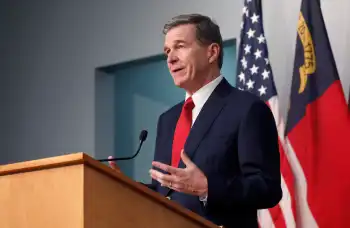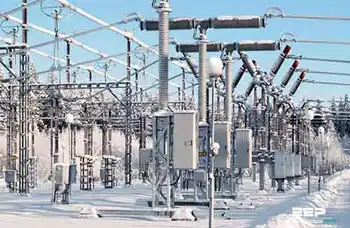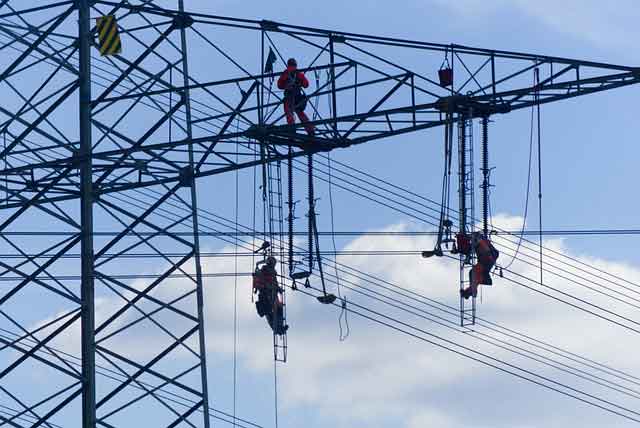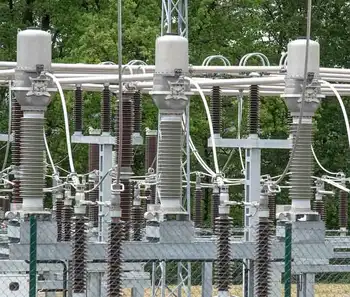In North Carolina, unpaid electric and water bills are driving families and cities to the financial brink

Substation Relay Protection Training
Our customized live online or in‑person group training can be delivered to your staff at your location.

- Live Online
- 12 hours Instructor-led
- Group Training Available
North Carolina Utility Arrears Crisis strains households and municipal budgets as COVID-19 cuts jobs; unpaid utility bills mount, shutoffs loom, and emergency aid, unemployment benefits, and CARES Act relief lag behind rising arrears across cities.
Key Points
A COVID-19 driven spike in unpaid utility bills, threatening households and municipal budgets as federal aid lapses.
✅ 1 million families behind on power, water, sewage bills
✅ $218M arrears accrued April to June, double last year
✅ Municipal utilities face shutoffs, budget shortfalls
As many as 1 million families in North Carolina have fallen behind on their electric, water and sewage bills, a sign of energy insecurity threatening residents and their cities with severe financial hardship unless federal lawmakers act to approve more emergency aid.
The trouble stems from the widespread economic havoc wrought by the coronavirus, which has left millions of workers out of a job and struggling to cover their monthly costs as some states moved to suspend utility shut-offs to provide relief. Together, they’ve been late or missed a total of $218 million in utility payments between April 1 and the end of June, according to data released recently by the state, nearly double the amount in arrears at this time last year.
In some cases, cities that own or operate their own utilities have been forced to absorb these losses, as some utilities reconnected customers to prevent harm, creating a dire situation in which the government’s attempt to save people from the financial brink instead has pushed municipal coffers to their own breaking point.
In Elizabeth City, N.C., for example, about 2,500 residents haven’t paid their electric bills on time, according to Richard Olson, the city manager. The late payments at one point proved so problematic that Olson said he calculated Elizabeth City wouldn’t have enough money to pay for its expenses in July. In response, city leaders requested and obtained a waiver from a statewide order, similar to New York’s disconnection moratorium, issued in March, that protects people from being penalized for their past-due utility bills.
The predicament has presented unique budget challenges throughout North Carolina, while illustrating the consequences of a cash crunch plaguing the entire country, where proposals such as a Texas electricity market bailout surfaced following severe grid stress. State and federal leaders have extended a range of coronavirus relief programs since March to try to help people through the pandemic. But the money is limited and restricted — and it’s not clear whether more help from Congress is on the way — creating a crisis in which the nation’s economic woes are outpacing some of the aid programs adopted to combat them.
“We are entering a phase where the utilities [may] be able to shut off power, but what was propping up people’s economic lives, the unemployment benefits and Cares Act support, won’t be there,” said Paul Meyer, the executive director of the North Carolina League of Municipalities.
White House, GOP in disarray over coronavirus spending plan as deadline nears on expiring emergency aid
The future of that safety-net support — and other federal aid — hangs in the balance as lawmakers returned to work this week in their final sprint ahead of the August recess. The White House and congressional leaders are split over the contours of the next coronavirus relief package, including the need to extend more aid to cities and states as some utilities have waived fees to help customers, and reauthorize an extra $600 in weekly unemployment payments that were approved as part of the Cares Act in March.
Outside Washington, workers, businesses and government officials nationwide have pleaded with federal lawmakers to renew or expand those programs. Last week, Roy Cooper, the Democratic governor of North Carolina, urged Congress to act swiftly and adopt a wide array of new federal spending, including proposals for DOE nuclear cleanup funding, stressing in a letter that the “actions you take in the next few weeks are vital to our ability to emerge from this crisis. ”











